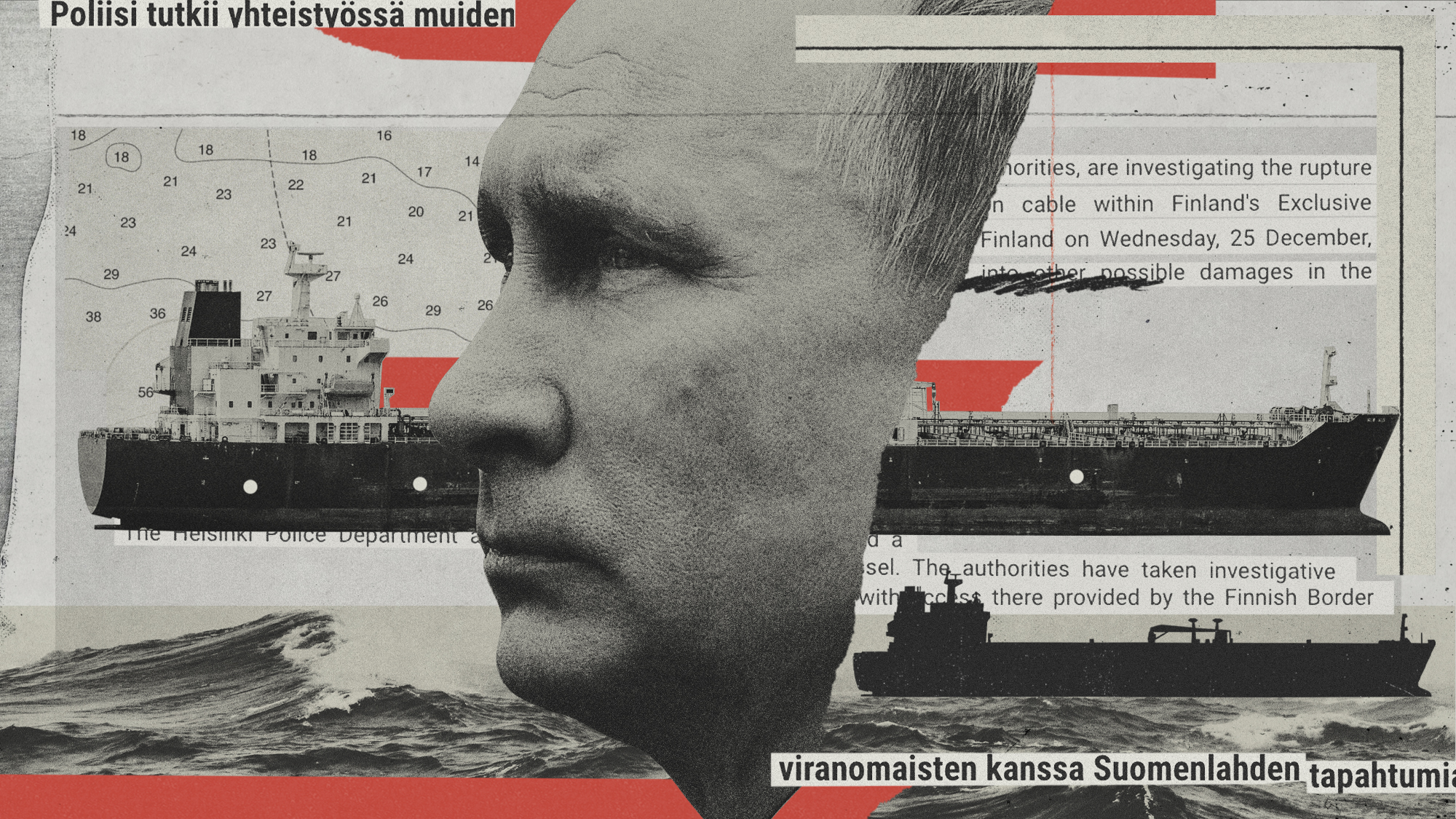Is Russia's 'shadow fleet' attacking Western infrastructure?
Built to evade sanctions, but sabotage may be next


A free daily email with the biggest news stories of the day – and the best features from TheWeek.com
You are now subscribed
Your newsletter sign-up was successful
Maybe you've heard of the "hybrid war" — Russian-sponsored attacks on European infrastructure, apparently designed to undermine support for Ukraine. Now the maritime equivalent is emerging: the "shadow fleet."
Finnish officials say a "Russia-affiliated vessel" named the Eagle S appears to have cut an undersea power line that runs between Finland and Estonia, said NPR. The tanker is suspected of being part of the shadow fleet, an armada of ships of "uncertain ownership" that has been used to help Russia evade oil sanctions. The Eagle S is registered in the Cook Islands but had "set off from Russia" the day before the line was severed. Russia is "stepping up pressure against the West," said Janne Riihelainen, a Finnish national security columnist.
The shadow fleet "threatens security and the environment, while funding Russia's war budget," Kaja Kallas, chief of foreign policy for the European Union, said to Politico. Four telecom cables — between Finland and Estonia, and Finland and Germany — were also damaged. In response, Finnish authorities have seized the Eagle S, while Estonian officials said they were stepping up naval patrols. NATO will also "enhance its military presence in the Baltic Sea," Secretary General Mark Rutte said in a social media post.
The Week
Escape your echo chamber. Get the facts behind the news, plus analysis from multiple perspectives.

Sign up for The Week's Free Newsletters
From our morning news briefing to a weekly Good News Newsletter, get the best of The Week delivered directly to your inbox.
From our morning news briefing to a weekly Good News Newsletter, get the best of The Week delivered directly to your inbox.
What is the shadow fleet?
After Russia invaded Ukraine in 2022, Ukraine's Western allies imposed a price cap on Russian oil exports "aimed at limiting and controlling Russian revenues," Sergey Vakulenko said at the Carnegie Endowment for International Peace. Russia countered by using hundreds of aging off-the-books tankers owned "outside of the Western coalition." Ship owners busted for evading sanctions can be forced to "scrap the vessel," Vakulenko said. So it makes sense to use old tankers "with low residual value in order to limit the potential losses."
The fleet is designed to keep Russia's oil income flowing, but the idea of using it to "cause havoc may be proving irresistible to the Kremlin," Michael Schwirtz said at The New York Times. The Eagle S incident would be a "clear escalation by Russia in its conflict with the West." But it would be a natural extension of the low-level conflict taking place across Europe. Russia is "systematically conducting hybrid warfare against its neighboring NATO/EU countries," Estonian interior minister Lauri Läänemets said to the Times.
Can the fleet be stopped?
The shadow fleet is a "vexing challenge," said Elisabeth Braw at the Atlantic Council. The longer it operates and the larger it grows, the more it threatens the "functioning of the global maritime order." One option: Governments of seagoing nations should establish a "monitoring hub" to identify and monitor shadow fleet ships.
The EU has sanctioned 79 ships from the shadow fleet, said Business Insider. Those ships are "banned from accessing EU ports and services." The list could grow — German Foreign Minister Annalena Baerbock is calling for expanded sanctions. Russia-connected ships are "damaging major undersea cables in the Baltic Sea almost every month," she said. The attack on the Finland-Estonia power line is an "urgent wake-up call for all of us."
A free daily email with the biggest news stories of the day – and the best features from TheWeek.com
Joel Mathis is a writer with 30 years of newspaper and online journalism experience. His work also regularly appears in National Geographic and The Kansas City Star. His awards include best online commentary at the Online News Association and (twice) at the City and Regional Magazine Association.
